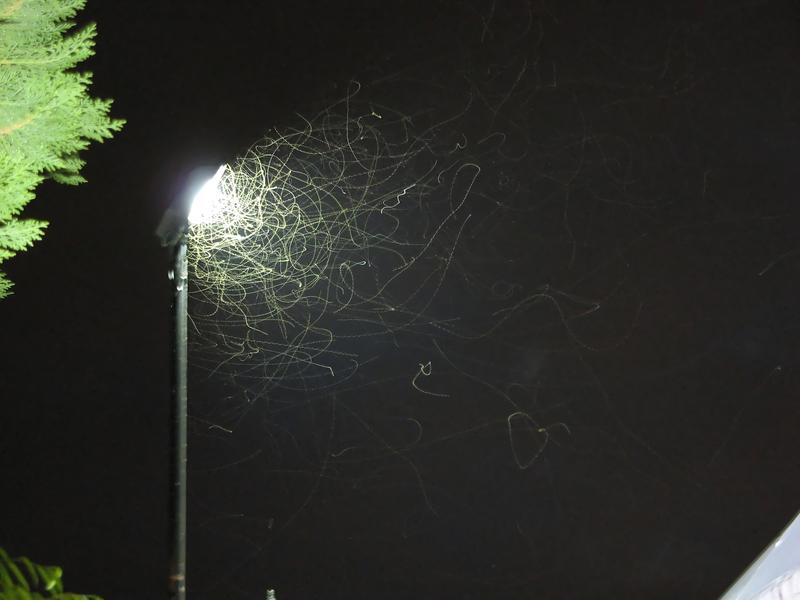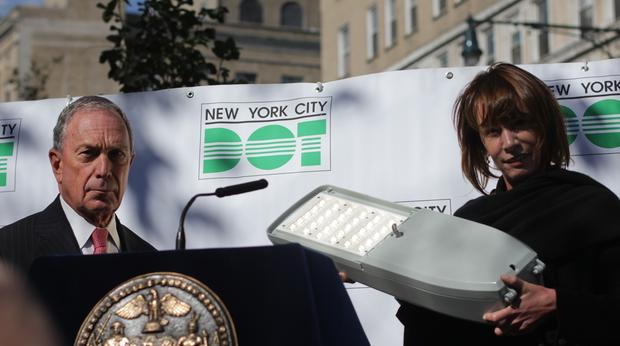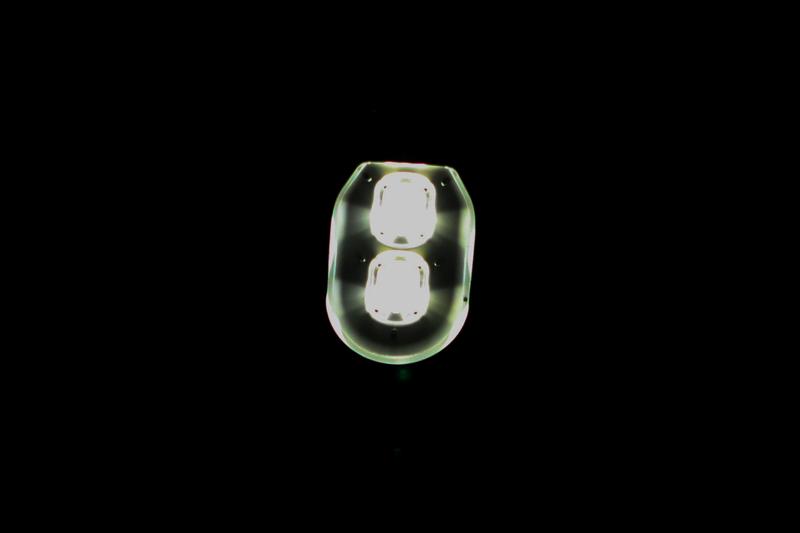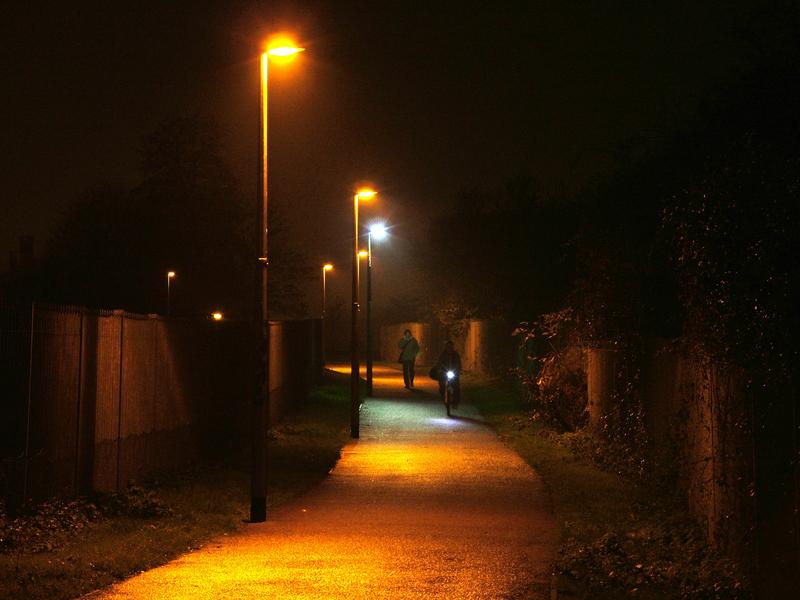
New York City is currently replacing its 250,000 sodium-vapor streetlights with energy-saving LEDs as part of an effort to reduce carbon emissions started by former Mayor Michael Bloomberg. The new lights will save an estimated $14 million annually on energy and maintenance costs once they are fully installed in 2017.
But not everyone who cares about the natural world is celebrating the program. The International Dark-Sky Association and the Zoological Lighting Institute, both nonprofits, have spoken up against the type of LED lighting that New York is installing.
James Karl Fischer, the founder of the Zoological Lighting Institute, calls the move "a disaster in the making."
While these lamps save energy and brighten the street, the light they give off is different. LED wavelengths are shorter; the light is bluer. According to Fischer, the bluer light with shorter wavelengths will lure insects and nocturnal creatures out of edge areas — whether that means shrubbery along a curb or the more distant wilderness. Next, predators, such as bats and birds, may follow. Fischer says those subtle migrations, repeated thousands of times across the metropolitan area, could knock fragile ecological systems out of balance.
"The world isn't infinite," he said. "Insects provide food and pollination. If they're diverse, you have a nice robust system. If they're not — because you've extracted some at the expense of others — you get pests."
Some LEDs emit an amber, narrow-frequency light that would attract fewer insects. But humans can't distinguish color as well under those lights. A city Department of Transportation spokeswoman says the agency uses the LEDs recommended by the U.S. Department of Energy.
It'll take time to see if Fischer's theory is right. But by then, he says, it may be too late.
"If you want to save wild places," he said, "the place to start is right here."
Hypothesis is written and produced by Alec Hamilton and edited by Matthew Schuerman. Sound design and engineering by Liora Noam-Kravitz. Original music by Josh Burnett.
Got an interesting science story? Tweet us! @wnyc #hypothesis




